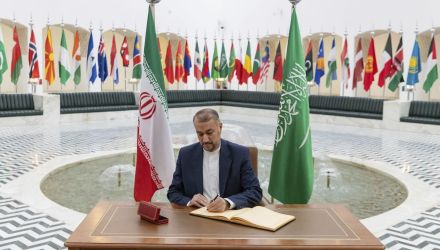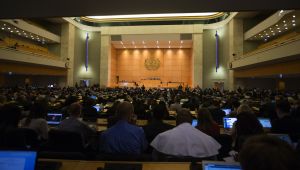Institutional Change and the Nuclear Non-Proliferation Regime
What explains the strength and durability of the regime centered on the Nuclear Non-Proliferation Treaty (NPT)? Is the security institution equipped to handle existing challenges and emerging threats in the nuclear arena? Policymakers and scholars alike have provided varying assessments of its prospects for the future. This work in progress posits that the regime's capacity for responsiveness and adaptability will ultimately dictate whether the NPT continues to be relevant, or whether it becomes a paper tiger.
Please join us! Coffee and tea provided. Everyone is welcome, but admittance will be on a first come–first served basis.



